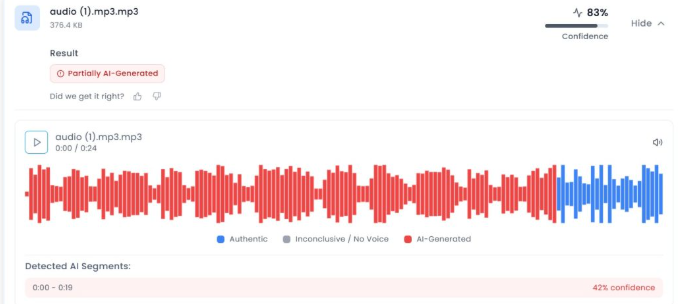The Symbiotic Relationship Between AI and Internet Governance in India
Introduction
There is a rising desire for artificial intelligence (AI) laws that limit threats to public safety and protect human rights while allowing for a flexible and inventive setting. Most AI policies prioritize the use of AI for the public good. The most compelling reason for AI innovation as a valid goal of public policy is its promise to enhance people's lives by assisting in the resolution of some of the world's most difficult difficulties and inefficiencies and to emerge as a transformational technology, similar to mobile computing. This blog explores the complex interplay between AI and internet governance from an Indian standpoint, examining the challenges, opportunities, and the necessity for a well-balanced approach.
Understanding Internet Governance
Before delving into an examination of their connection, let's establish a comprehensive grasp of Internet Governance. This entails the regulations, guidelines, and criteria that influence the global operation and management of the Internet. With the internet being a shared resource, governance becomes crucial to ensure its accessibility, security, and equitable distribution of benefits.
The Indian Digital Revolution
India has witnessed an unprecedented digital revolution, with a massive surge in internet users and a burgeoning tech ecosystem. The government's Digital India initiative has played a crucial role in fostering a technology-driven environment, making technology accessible to even the remotest corners of the country. As AI applications become increasingly integrated into various sectors, the need for a comprehensive framework to govern these technologies becomes apparent.
AI and Internet Governance Nexus
The intersection of AI and Internet governance raises several critical questions. How should data, the lifeblood of AI, be governed? What role does privacy play in the era of AI-driven applications? How can India strike a balance between fostering innovation and safeguarding against potential risks associated with AI?
- AI's Role in Internet Governance:
Artificial Intelligence has emerged as a powerful force shaping the dynamics of the internet. From content moderation and cybersecurity to data analysis and personalized user experiences, AI plays a pivotal role in enhancing the efficiency and effectiveness of Internet governance mechanisms. Automated systems powered by AI algorithms are deployed to detect and respond to emerging threats, ensuring a safer online environment.
A comprehensive strategy for managing the interaction between AI and the internet is required to stimulate innovation while limiting hazards. Multistakeholder models including input from governments, industry, academia, and civil society are gaining appeal as viable tools for developing comprehensive and extensive governance frameworks.
The usefulness of multistakeholder governance stems from its adaptability and flexibility in requiring collaboration from players with a possible stake in an issue. Though flawed, this approach allows for flaws that may be remedied using knowledge-building pieces. As AI advances, this trait will become increasingly important in ensuring that all conceivable aspects are covered.
The Need for Adaptive Regulations
While AI's potential for good is essentially endless, so is its potential for damage - whether intentional or unintentional. The technology's highly disruptive nature needs a strong, human-led governance framework and rules that ensure it may be used in a positive and responsible manner. The fast emergence of GenAI, in particular, emphasizes the critical need for strong frameworks. Concerns about the usage of GenAI may enhance efforts to solve issues around digital governance and hasten the formation of risk management measures.
Several AI governance frameworks have been published throughout the world in recent years, with the goal of offering high-level guidelines for safe and trustworthy AI development. The OECD's "Principles on Artificial Intelligence" (OECD, 2019), the EU's "Ethics Guidelines for Trustworthy AI" (EU, 2019), and UNESCO's "Recommendations on the Ethics of Artificial Intelligence" (UNESCO, 2021) are among the multinational organizations that have released their own principles. However, the advancement of GenAI has resulted in additional recommendations, such as the OECD's newly released "G7 Hiroshima Process on Generative Artificial Intelligence" (OECD, 2023).
Several guidance documents and voluntary frameworks have emerged at the national level in recent years, including the "AI Risk Management Framework" from the United States National Institute of Standards and Technology (NIST), a voluntary guidance published in January 2023, and the White House's "Blueprint for an AI Bill of Rights," a set of high-level principles published in October 2022 (The White House, 2022). These voluntary policies and frameworks are frequently used as guidelines by regulators and policymakers all around the world. More than 60 nations in the Americas, Africa, Asia, and Europe had issued national AI strategies as of 2023 (Stanford University).
Conclusion
Monitoring AI will be one of the most daunting tasks confronting the international community in the next centuries. As vital as the need to govern AI is the need to regulate it appropriately. Current AI policy debates too often fall into a false dichotomy of progress versus doom (or geopolitical and economic benefits versus risk mitigation). Instead of thinking creatively, solutions all too often resemble paradigms for yesterday's problems. It is imperative that we foster a relationship that prioritizes innovation, ethical considerations, and inclusivity. Striking the right balance will empower us to harness the full potential of AI within the boundaries of responsible and transparent Internet Governance, ensuring a digital future that is secure, equitable, and beneficial for all.
References
- The Key Policy Frameworks Governing AI in India - Access Partnership
- AI in e-governance: A potential opportunity for India (indiaai.gov.in)
- India and the Artificial Intelligence Revolution - Carnegie India - Carnegie Endowment for International Peace
- Rise of AI in the Indian Economy (indiaai.gov.in)
- The OECD Artificial Intelligence Policy Observatory - OECD.AI
- Artificial Intelligence | UNESCO
- Artificial intelligence | NIST








